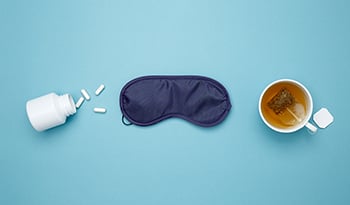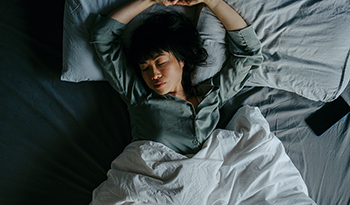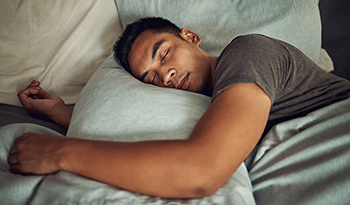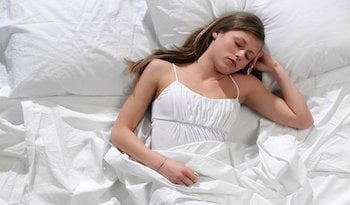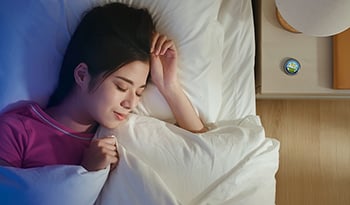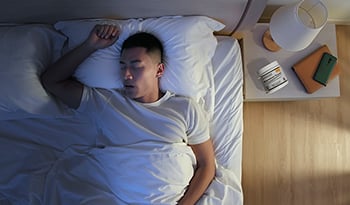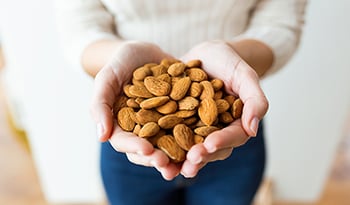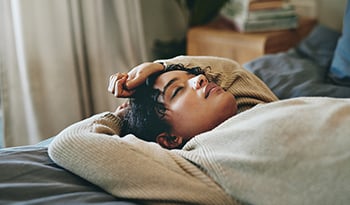The Ultimate Sleep Hygiene Checklist: A Doctor’s Guide To Better Rest
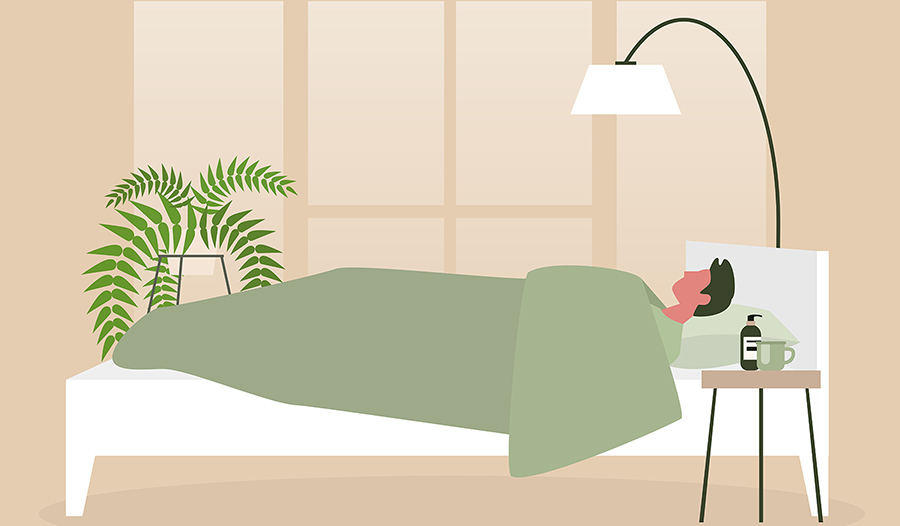
Key Takeaways
- Why Sleep Matters: Getting at least seven hours of sleep is crucial for cellular health, healing, mood regulation, and cognitive function, while sleep deprivation is linked to increased risks of chronic conditions like heart disease and diabetes.
- Common Disruptors: Sleep disturbances are often caused by lifestyle factors such as stress, excessive caffeine or alcohol, blue light exposure, irregular schedules, and eating too close to bedtime.
- Top 3 Natural Aids: Magnesium supports muscle relaxation and sleep efficiency; Melatonin helps regulate the sleep-wake cycle; and Lemon Balm is an herb known for its calming, mood-balancing effects.
- Sleep Hygiene Essentials: Establish a routine that activates the "rest and digest" system, keep the bedroom cool (62-70°F) and dark, avoid screens and exercise before bed, and maintain consistent sleep/wake times to optimize rest.
Why Is Sleep Important For Health?
Science shows a clear correlation between sleep and our cellular health, including the functioning of our brain cells. When sleep deprived, our bodies heal more slowly, our mood lowers, our volatility increases, and our concentration and attention span are compromised. Though it is recommended that we sleep more than seven hours a day, a study by the Centers for Disease Control and Prevention on sleep disturbance shows that more than one-third of people in the United States get less than seven hours.
The American Academy of Sleep Medicine and the Sleep Research Society also recommend that adults sleep at least seven hours each night to promote optimal health and well-being. Sleeping less than seven hours per day is associated with an increased risk of developing chronic conditions such as obesity, diabetes, high blood pressure, heart disease, stroke, and frequent mental distress.”
What Are The Main Causes Of Sleep Disturbance?
Sleep disturbance and dysfunction have many shapes, including an inability to fall asleep, frequent waking, and night waking without returning to sleep. There are a plethora of causes for this lack of quality sleep.
If a sleep disorder such as obstructive sleep apnea or narcolepsy is not present, you are most likely experiencing one of these reasons for lack of healthy sleep:
- Short sleep duration (not allowing enough time for sleep)
- High daytime stress or an overly active sympathetic nervous system
- Over intake of caffeine, nicotine, and/or alcohol
- Stimulation from electronics and blue light
- Anxiety, depression, and hormone imbalance
- Circadian rhythm disruption due to irregular schedules (from travel, work, and social engagements)
- Eating late at night directly before bed
3 Effective Natural Sleep-Aids
1. Magnesium
Magnesium is one of the most essential nutrients for the human body as it aids the formation of over 325 enzymatic processes used for necessary cellular function. Despite its importance, there are millions of Americans in the United States and across the world who are deficient in magnesium.
This rich mineral is thought to help muscle relaxation, hydration, energy production, and the deactivation of adrenaline. Supplementing with around 500 mg a day was shown by the Journal of Research in Medical Sciences to help ease your insomnia and boost sleep efficiency.
Magnesium shows benefit in children and adults and comes in some fun flavored powders that are easy to add to water and share with the family. You will also commonly see it added to sleep gummies for synergistic relaxation.
2. Melatonin
Melatonin is the body’s natural sleep hormone released at night by the pineal gland in our brain to provide a sleep-wake daily rhythm called the circadian rhythm. There are several ways to get more melatonin when your lifestyle does not support your body in producing enough.
Certain foods contain melatonin or tryptophan, an amino acid that helps to increase melatonin levels, and include the following:
- Bananas
- Morello cherries
- Rice
- Ginger
- Tomatoes
- Radishes
Supplementation is the more common way to get more melatonin. Most physicians recommend melatonin supplementation after a medical evaluation of sex, stress, and thyroid hormones because hormone imbalance often involves multiple hormones.
3. Lemon Balm Leaf
Lemon balm, Melissa officialis, is a member of the mint family and is commonly used as a medicinal herb and as a fresh flavor in the culinary world. Its active constituents are health-promoting antioxidants.
Several clinical studies show lemon balm to be effective for calming and enhancing sleep. One double-blinded study showed a dose of 600 mg of standardized extract not only maintained a balanced mood but also supported overall calmness.
Lemon balm can be ingested as a tea, tincture, and capsule, and is found in some combination gummy sleep-aids.
7 Sleep Hygiene Rules
Just as we know the importance of dental hygiene to prevent cavities, sleep hygiene is a must to support healthy sleep. Sleep preparation routines help you find your best snooze. Here are a few tips.
1. Activate your parasympathetic nervous system (the state of “rest and digest”).
Relaxation techniques such as journaling, meditation, mindful eating, deep breathing, and yoga help us to be present in the moment and quiet the sympathetic nervous system (the state of “fight or flight”). We need the parasympathetic nervous system to be dominant to rest.
2. Eat clean foods at least two hours before bed.
Eating processed foods and chemicals that cause blood sugar spikes can trigger stress hormones such as adrenaline to pump through your system at night. Clean foods without added chemicals, preservatives, and pesticides are much easier to digest and help you reach a resting state much faster. Choose to enjoy healthy fats, a rainbow of organic plant-based foods, and protein from animals that lived in a lower-stress environment.
3. Cool and darken the room.
Research shows our bodies rest more deeply in cooler temperature ranges of 62-70 degrees. Dark rooms also have the same effect. Avoid the light by placing your phone outside of the bedroom, and turn your alarm clock away from you and on the dimmest setting possible. Light stops the release of melatonin, the hormone that tells your body it is time to sleep.
4. Lower the digital stimulation.
As much as possible, turn off your devices at least two hours before bed. If you are often under fluorescent lights or on a screen, invest in a pair of blue-blocking glasses to wear later in the day and into the night. There are also supplements for visual health to complement your routine.
5. Avoid exercise before bed.
We do need to sweat daily, but exercise within three hours of bed can be stimulating and give you a cortisol burst or “a second wind.” It is best to exercise at any time before 7 p.m.
6. Set a sleep time eight hours before your waking time.
Aim to have your head on the pillow by a certain time each night, and before 11 p.m. Cortisol surges can occur around 11 p.m., and if you’re awake past that point, you may be up for a lot longer than you want to be.
7. Utilize sleep-aid supplements.
Many minerals, vitamins, like magnesium, melatonin, lemon balm, vitamin B6, amino acids, and plant compounds have consistently been shown to support restful sleep.
As digital stimulation and expected work and family demands seem to be at an all-time high, sleep disruption is common. Luckily, some natural options for slumber can be easily obtained and are effective for the relaxation we all dream of.
References:
- Liu Y, Wheaton AG, Chapman DP, Cunningham TJ, Lu H, Croft JB. Prevalence of healthy sleep duration among adults — the United States, 2014. MMWR Morb Mortal Wkly Rep. 2016;65(6):137–141.
- Liu Y, Croft JB, Wheaton AG, et al. Clustering of five health-related behaviors for chronic disease prevention among adults, United States, 2013. Prev Chronic Dis. 2016;13:160054.
- Abbasi B, Kimiagar M, Sadeghniiat K, Shirazi MM, Hedayati M, Rashidkhani B. The effect of magnesium supplementation on primary insomnia in elderly: A double-blind placebo-controlled clinical trial. J Res Med Sci. 2012;17(12):1161-1169.
- Kennedy DO, Scholey AB, Tildesley NT, et al. Modulation of mood and cognitive performance following acute administration of Melissa officinalis (Lemon balm), Pharmacol Biochem Behav (2002 Jul) 72(4):953-6
DISCLAIMER:This Wellness Hub does not intend to provide diagnosis...

















































































 Table of Contents
Table of Contents





